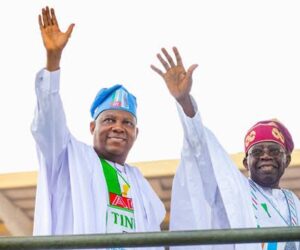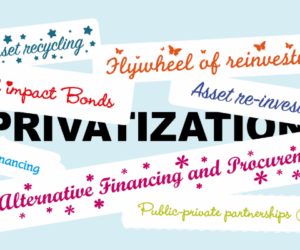
Beyond the numbers, the most compelling argument for electronic voting lies in its potential to transform the political culture and compel leaders to perform. The current system, with its vulnerabilities to fraud — from ballot box stuffing to outright vote-buying — has created an environment in which electoral victory is often determined, not by a leader’s merit, but by his ability to outmanoeuvre opponents through illicit means. In this context, the mandate to govern can feel less like a public trust and more like a stolen prize.
It’s not the voting that’s democracy; it’s the counting. – Tom Stoppard<
Nigeria’s democratic process has long been a paradox: a beacon of hope for self-governance, yet a source of immense financial and operational strain. In a nation where economic prudence is a necessity, our electoral system has often felt like an expensive carnival, draining public resources with little to show for it. My article, in a 2018 argument about saving a staggering ₦240 billion by digitising our elections, remains as relevant today as it was then. One of my points, steeped in the economic principle of opportunity cost, was a reminder that every naira spent on printing ballot papers and hiring a massive ad-hoc workforce is a naira not invested in education, healthcare, or critical infrastructure. Electronic voting isn’t merely a technological upgrade, it is a fundamental shift towards fiscal responsibility that Nigeria can no longer afford to delay.
The financial hemorrhaging associated with manual elections goes beyond the official budget. It includes the hidden costs of managing widespread logistical chaos, the security apparatus required to protect vulnerable materials, and the legal fees from endless post-election litigations. An electronic system, with its leaner, more efficient design, would drastically cut these expenses, freeing up billions to be channeled, hopefully, into meaningful national development. This is not just about saving money; it is about redirecting national wealth from a flawed process to projects that directly improve the lives of citizens.
Beyond the numbers, the most compelling argument for electronic voting lies in its potential to transform the political culture and compel leaders to perform. The current system, with its vulnerabilities to fraud — from ballot box stuffing to outright vote-buying — has created an environment in which electoral victory is often determined, not by a leader’s merit, but by his ability to outmanoeuvre opponents through illicit means. In this context, the mandate to govern can feel less like a public trust and more like a stolen prize. And this is the primary driver for the scale of desperation and corruption by the current political class.
By making the voting process more transparent and secure, it would make it much harder for politicians to manipulate results. Most importantly, when a leader knows his victory is a clear reflection of the people’s will, his primary focus would shift from maintaining a corrupt electoral machine to actually delivering on his campaign promises.
An electronic voting system, based on biometric data already captured through national identity databases like the BVN, NIMC, and PVC, would significantly reduce these avenues for fraud. By making the voting process more transparent and secure, it would make it much harder for politicians to manipulate results. Most importantly, when a leader knows his victory is a clear reflection of the people’s will, his primary focus would shift from maintaining a corrupt electoral machine to actually delivering on his campaign promises. And, his re-election would depend directly on his performance in office, thereby forcing him to tackle pressing issues such as insecurity, poverty, and unemployment with genuine dedication. This creates a powerful feedback loop: a more transparent process leads to greater accountability, which in turn leads to better governance.
Of course, the transition to electronic voting is not without its challenges. Critics will rightly raise concerns about digital literacy, cybersecurity, and the potential for a “digital divide” to disenfranchise rural communities. These are valid points, but they are not insurmountable. The same technology that facilitates seamless financial transactions across Nigeria can be adapted for a secure voting platform. By partnering with telecommunication providers and establishing dedicated voting centres in remote areas, we can ensure broad access for all citizens.
The time for half-measures is over. Nigeria’s democracy needs a robust, transparent, and cost-effective system to truly reflect the will of the people and hold its leaders accountable. This is the path to a more stable, equitable, and progressive future for our nation.
The push for electronic voting is more than just a call for modernisation; it’s a strategic move to save a democracy in peril. It would not only save Nigeria from the financial burden of its “electoral jamborees” but, more importantly, it would force a long-overdue cultural shift among the political class. With the quality of elections held so far, no one needs a soothsayer to tell us that this brand of electioneering can’t take the country far.
The time for half-measures is over. Nigeria’s democracy needs a robust, transparent, and cost-effective system to truly reflect the will of the people and hold its leaders accountable. This is the path to a more stable, equitable, and progressive future for our nation.
Umar Yakubu is the Executive Director of Center for Fiscal Transparency and Public Integrity.










